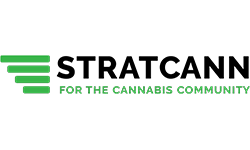Following Delta 9 Cannabis’s recent CCAA filing, the company’s court-appointed Monitor has begun an investment process seeking interest in, and opportunities for, a sale of, or investment in, all or part of Delta 9 Bio-Tech’s assets and business operations.
On July 31, Delta 9’s Monitor, Alvarez & Marsal Canada Inc. (A&M) issued a sale and investment process notice (SISP) and distributed letters and NDAs to known potential bidders, with a bid deadline of October 28, 2024.
If required, an auction will be held on October 30, with a closing date deadline of November 12. The monitor may extend the dates set out in the SISP with the consent and approval of Delta 9 Bio0Tech, Fika Herbal Goods, Delta 9’s Interim Lender, and SNDL Inc.
In a press release earlier in July, Delta 9 stated that obtaining CCAA protection was in the best interest of it and its shareholders, especially in light of recent “aggressive” actions by its creditors, namely recent demand notices from SNDL Inc. on May 21 and July 12 and SNDL’s recent acquisition of all the Company’s senior secured debt for $21 million.
On July 15, Delta 9 announced that it had entered into a binding term sheet for the FIKA Company to act as a plan sponsor to its CCAA proceedings. Through this process, FIKA would acquire Delta 9’s retail cannabis and distribution business while also assisting with a sale and investment solicitation process for the assets of the licensed cannabis production business. In exchange, Delta 9 would receive equity in FIKA.
FIKA will participate in and fund the costs of Delta 9’s CCAA proceedings through interim financing and present one or more plans of compromise or arrangements to Delta 9’s creditors. Under the agreement, FIKA will provide up to $3 million to fund the costs of the CCAA proceedings and up to $13 million to repay the secured obligations owing to SNDL Inc.
A receiving a recent extension of its CCAA filing, granted after a court hearing on July 24, Delta 9 and its subsidiaries—Delta 9 Logistics Inc., Delta 9 Bio-Tech Inc., Delta 9 Lifestyle Cannabis Clinic Inc., and Delta 9 Cannabis Store Inc.—included the approval of the $16 million FIKA has offered in interim financing, as well as a key employee retention plan in the amount of $650,00.
In an affidavit posted on July 22, Delta 9 CEO John Arbuthnot says Delta 9’s current excise tax arrears are approximately $7,800,000. The affidavit continues that in November 2023, the company applied to the Canada Revenue Agency (CRA) for relief of interest and penalties “due to financial hardship.” Arbuthnot believes there is a chance to reduce that amount by approximately $2 million.
Because of Delta 9’s tax arrears, the CRA moved to only renew the company’s excise licence on a 30-day basis, beginning in December 2023. Delta 9 Bio-Tech was also required to enter into a payment plan to address its owed excise tax in monthly payments of $50,000.
To keep the licence renewed, the company must make not only the $50,000 payment but also the go-forward monthly excise tax amount, which Arbuthnot says is a significant financial strain on the company.
The Toronto Stock Exchange (TSX) has scheduled the delisting of Delta 9’s common shares on the TSX for August 22, 2024, for failure to meet the TSX’s continued listing requirements. Trading in the Common Shares is currently halted on the TSX.
Bio-Tech is the largest cannabis producer in the province of Manitoba and owns a 98,804 sq ft. cultivation and processing facility in Winnipeg, Manitoba. The facility contains 297 320 sq ft shipping containers modified into modular “grow pods.”
The Company says it has been able to cultivate cannabis at a cash cost of $0.60 to $0.70/gram.
The company was first licensed in 2014 and was one of the first handful of federally licensed cannabis producers under Canada’s first commercial medical cannabis program, the MMPR.
![]()


